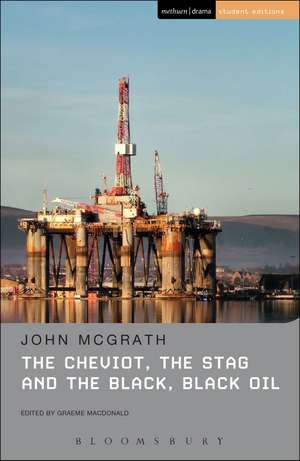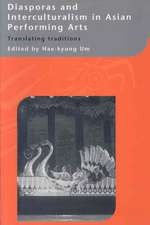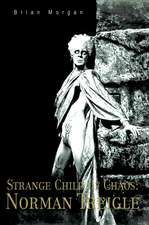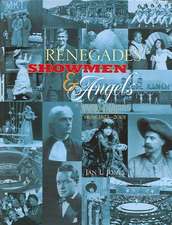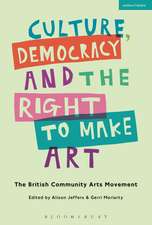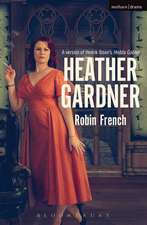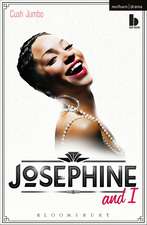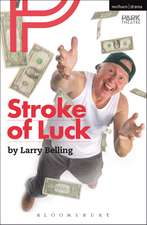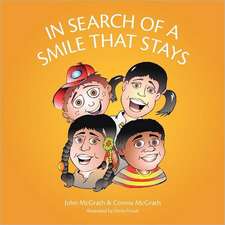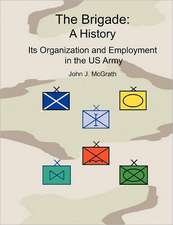The Cheviot, the Stag and the Black, Black Oil: Student Editions
Autor John McGrath Dr Graeme Macdonalden Limba Engleză Paperback – 25 feb 2015
| Toate formatele și edițiile | Preț | Express |
|---|---|---|
| Paperback (2) | 74.48 lei 3-5 săpt. | +15.08 lei 7-13 zile |
| Bloomsbury Publishing – 25 feb 2015 | 74.48 lei 3-5 săpt. | +15.08 lei 7-13 zile |
| Bloomsbury Publishing – 28 oct 1981 | 78.18 lei 3-5 săpt. | |
| Hardback (1) | 99.12 lei 3-5 săpt. | +23.92 lei 7-13 zile |
| Bloomsbury Publishing – 3 noi 2019 | 99.12 lei 3-5 săpt. | +23.92 lei 7-13 zile |
Din seria Student Editions
-
 Preț: 41.97 lei
Preț: 41.97 lei - 8%
 Preț: 72.42 lei
Preț: 72.42 lei - 13%
 Preț: 74.03 lei
Preț: 74.03 lei - 8%
 Preț: 72.65 lei
Preț: 72.65 lei - 8%
 Preț: 59.77 lei
Preț: 59.77 lei - 7%
 Preț: 74.03 lei
Preț: 74.03 lei - 19%
 Preț: 72.68 lei
Preț: 72.68 lei - 8%
 Preț: 73.08 lei
Preț: 73.08 lei - 18%
 Preț: 73.94 lei
Preț: 73.94 lei - 19%
 Preț: 85.17 lei
Preț: 85.17 lei - 14%
 Preț: 71.98 lei
Preț: 71.98 lei - 8%
 Preț: 73.14 lei
Preț: 73.14 lei - 14%
 Preț: 85.89 lei
Preț: 85.89 lei - 20%
 Preț: 71.45 lei
Preț: 71.45 lei - 13%
 Preț: 74.91 lei
Preț: 74.91 lei - 14%
 Preț: 73.56 lei
Preț: 73.56 lei - 8%
 Preț: 72.58 lei
Preț: 72.58 lei - 14%
 Preț: 72.24 lei
Preț: 72.24 lei - 14%
 Preț: 71.98 lei
Preț: 71.98 lei - 14%
 Preț: 84.99 lei
Preț: 84.99 lei - 8%
 Preț: 73.44 lei
Preț: 73.44 lei - 14%
 Preț: 59.87 lei
Preț: 59.87 lei - 14%
 Preț: 72.68 lei
Preț: 72.68 lei - 13%
 Preț: 74.03 lei
Preț: 74.03 lei - 18%
 Preț: 73.56 lei
Preț: 73.56 lei - 9%
 Preț: 85.24 lei
Preț: 85.24 lei - 8%
 Preț: 72.51 lei
Preț: 72.51 lei - 8%
 Preț: 72.48 lei
Preț: 72.48 lei - 9%
 Preț: 71.80 lei
Preț: 71.80 lei - 14%
 Preț: 72.68 lei
Preț: 72.68 lei - 7%
 Preț: 74.03 lei
Preț: 74.03 lei - 14%
 Preț: 66.60 lei
Preț: 66.60 lei - 8%
 Preț: 72.33 lei
Preț: 72.33 lei - 14%
 Preț: 72.24 lei
Preț: 72.24 lei - 7%
 Preț: 74.48 lei
Preț: 74.48 lei - 8%
 Preț: 72.99 lei
Preț: 72.99 lei - 8%
 Preț: 79.70 lei
Preț: 79.70 lei - 14%
 Preț: 71.95 lei
Preț: 71.95 lei - 8%
 Preț: 72.68 lei
Preț: 72.68 lei - 8%
 Preț: 72.61 lei
Preț: 72.61 lei - 8%
 Preț: 65.90 lei
Preț: 65.90 lei - 8%
 Preț: 59.24 lei
Preț: 59.24 lei - 8%
 Preț: 72.68 lei
Preț: 72.68 lei - 14%
 Preț: 85.80 lei
Preț: 85.80 lei - 8%
 Preț: 72.73 lei
Preț: 72.73 lei - 9%
 Preț: 72.18 lei
Preț: 72.18 lei - 14%
 Preț: 72.89 lei
Preț: 72.89 lei - 23%
 Preț: 72.18 lei
Preț: 72.18 lei - 7%
 Preț: 74.03 lei
Preț: 74.03 lei
Preț: 74.48 lei
Preț vechi: 80.23 lei
-7% Nou
Puncte Express: 112
Preț estimativ în valută:
14.25€ • 14.88$ • 11.80£
14.25€ • 14.88$ • 11.80£
Carte disponibilă
Livrare economică 14-28 martie
Livrare express 28 februarie-06 martie pentru 25.07 lei
Preluare comenzi: 021 569.72.76
Specificații
ISBN-13: 9781472531094
ISBN-10: 1472531094
Pagini: 216
Ilustrații: illustrations
Dimensiuni: 129 x 198 x 15 mm
Greutate: 0.23 kg
Editura: Bloomsbury Publishing
Colecția Methuen Drama
Seria Student Editions
Locul publicării:London, United Kingdom
ISBN-10: 1472531094
Pagini: 216
Ilustrații: illustrations
Dimensiuni: 129 x 198 x 15 mm
Greutate: 0.23 kg
Editura: Bloomsbury Publishing
Colecția Methuen Drama
Seria Student Editions
Locul publicării:London, United Kingdom
Caracteristici
This groundbreaking play took professional theatre to a whole new public as John McGrath reinvented touring theatre, opening its doors to new audiences, venues and new touring companies.
Notă biografică
John McGrath was born in Birkenhead, Cheshire, in 1935. After national service and Oxford University, he wrote and directed for theatre and television, as well as writing for cinema. Early work included Z-Cars for BBC-TV (1962), Events While Guarding the Bofors Gun (1966) and the screenplay for Billion Dollar Brain (1976). In 1971, together with Elizabeth MacLennan, he co-founded the 7:84 Theatre Company, which divided into Scottish and English companies in 1973 with McGrath remaining as Artistic Director of both. During his career McGrath wrote over 60 plays, including Fish in the Sea (1972), The Cheviot, the Stag and the Black, Black Oil (1973), Blood Red Roses (1980), Border Warfare (1989), Watching for Dolphins (1992) and, most recently, HyperLynx (2001). He was twice Visiting Fellow in Theatre at Cambridge University. His previous books include A Good Night Out (1981), The Bone Won't Break (1990) and Six Pack: Plays for Scotland (1996).McGrath founded Freeway Films in 1982, for which he produced, amongst others, The Dressmaker (1985), Carrington (1995), Ma Vie en Rose (1997) and Aberdeen (2002). He also founded Moonstone International Screen Labs to support and promote independent European filmmaking. He received Lifetime Achievement Awards from both BAFTA (in 1993) and the Writers' Guild of Great Britain (in 1997), as well as Honorary Doctorates from the University of Stirling and the University of London. He died in 2002.Graeme Macdonald (editor) is Associate Professor in the Department of English and Comparative Literary Studies at the University of Warwick, UK, where he teaches modern and contemporary literature and drama. He has authored various articles and essays on 19-21C literature and culture, and is editor of Post-Theory: New Directions in Criticism (1999) and Scottish Literature and Postcolonial Literature (2011).
Cuprins
John McGrath: Politics, Aesthetics and Biography; Plot; Commentary; Context: McGrath's Theatre for Community; Influences: from Brecht to Music Hall; Theatre Without Walls: 7:84 to NTS; The Cheviot as a "World" Play; Issues: Land, Development and the Highlands; Imperialism, Nationalism and "Devolutionary-Britain"; Language and Clearance: Peripheralising Culture; The Cheviot: From Peasant to Petro-Drama; Structure; The Ceilidh as Dramatic Form: Reeling and Repetition; Comedy, Pantomime and Political Satire ; Production and Audience; "Live" History: Chronology and Capitalist; Modernity; Conclusion: A Play for Today?; References; Further Reading; The Cheviot, the Stag and the Black, Black Oil; Notes; Questions for Further Study.
Recenzii
[McGrath] was Britain's Brecht, Scotland's Dario Fo . . . A creative powerhouse who was often out of fashion, but never out of action . . . Today, few speak, far less make theatre, with such ideological intent.
The late John McGrath's hugely important fusion of Highland ceilidh and old-fashioned Scots musical theatre . . . still remains alive and contemporary. As play it has everything, and it throws it at you in generous handfuls; laughter, farce, drama, live song and dance, finely researched political intent. . . . as a love song to a beautiful, damaged culture and a warning of the dangers of unchecked capitalism it still rings astonishingly true.
arguably the single most important show in the whole history of Scottish theatre: important not only because of its angry, hilarious, brilliantly-researched political content, still almost frighteningly relevant today, but because its ceilidh form, and its passionate commitment to touring to communities large and small, galvanised an irreversible change in what Scotland thought theatre was, what it could do, and who its audience might be. . . . John McGrath's great play will reach out to a new generation, and continue to evolve, develop, and live, along with the story of Scotland itself.
The late John McGrath's hugely important fusion of Highland ceilidh and old-fashioned Scots musical theatre . . . still remains alive and contemporary. As play it has everything, and it throws it at you in generous handfuls; laughter, farce, drama, live song and dance, finely researched political intent. . . . as a love song to a beautiful, damaged culture and a warning of the dangers of unchecked capitalism it still rings astonishingly true.
arguably the single most important show in the whole history of Scottish theatre: important not only because of its angry, hilarious, brilliantly-researched political content, still almost frighteningly relevant today, but because its ceilidh form, and its passionate commitment to touring to communities large and small, galvanised an irreversible change in what Scotland thought theatre was, what it could do, and who its audience might be. . . . John McGrath's great play will reach out to a new generation, and continue to evolve, develop, and live, along with the story of Scotland itself.
